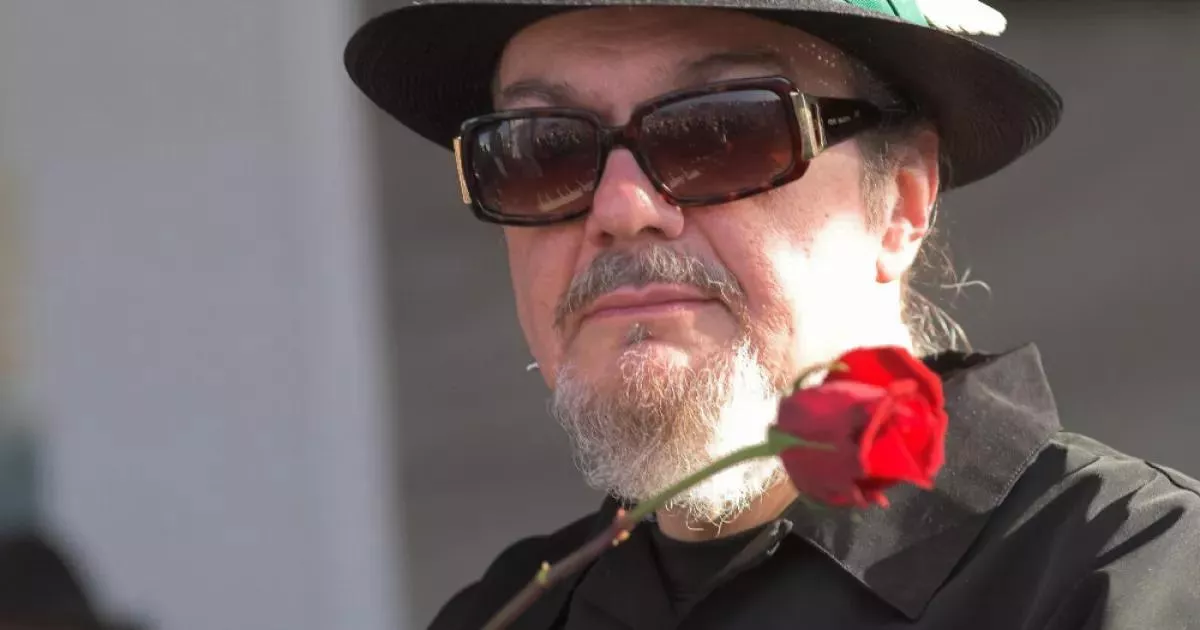"Dr. John" was the stage name of American musician Malcolm John Rebennack Jr. He was known for his unique blend of musical styles, including blues, jazz, funk, and R&B, all rooted in the musical traditions of his hometown, New Orleans.
November 21, 1940: Birth of Dr. John (Incorrect Date)
Dr. John was widely believed to have been born on November 21, 1940. However, this birthdate was later corrected.
November 20, 1941: Birth of Malcolm John Rebennack Jr.
On November 20, 1941, Malcolm John Rebennack Jr., later known as Dr. John, was born in New Orleans, Louisiana.
1954: Expelled from Jesuit High School
Dr. John was expelled from Jesuit High School in 1954 due to his involvement in playing music at night clubs, which the school disapproved of.
1955: Early Studio Debut
Around 1955, a young Dr. John had his debut in the studio, signing as a songwriter and artist with Aladdin Records.
1956: Early Studio Debut
Around 1956, a young Dr. John had his debut in the studio, signing as a songwriter and artist with Aladdin Records.
1957: Joins Musicians' Union
Dr. John officially joined the musicians' union at the end of 1957, marking a significant step in his professional music career.
1957: Regional Hit with "Lights Out"
Dr. John's first co-written rock and roll song, "Lights Out", sung by Jerry Byrne, became a regional hit in 1957.
1959: Regional Hit with "Storm Warning"
Dr. John had a regional instrumental hit with "Storm Warning" on Rex Records in 1959.
1960: Guitar Injury
Around 1960, Dr. John's career as a guitarist was hampered by a gunshot injury to his left hand, leading him to focus on piano.
1965: Release from Prison and Move to Los Angeles
After serving a prison sentence for drug charges, Dr. John was released in 1965 and relocated to Los Angeles.
1966: Session Work on Frank Zappa's "Freak Out!"
In 1966, Dr. John was part of the session musicians who played on Frank Zappa and the Mothers of Invention's album "Freak Out!".
1967: Start of the "Gris-Gris" Routine
Dr. John began performing his "Gris-Gris" routine in 1967, incorporating elements of psychedelic voodoo music and theatrics into his act.
January 1968: Debut Album "Gris-Gris" Released
January 1968 marked the release of Dr. John's debut album, "Gris-Gris", which introduced his unique blend of New Orleans music and voodoo elements.
1968: Beginning of "Gris-Gris Gumbo Ya Ya" Singles Period
1968 marked the start of the period from which Dr. John's singles were compiled for the album "Dr. John: Gris-Gris Gumbo Ya Ya: Singles 1968-1974."
1968: Session Work on Canned Heat's "Living the Blues"
Dr. John contributed his musical talents to Canned Heat's album "Living the Blues", released in 1968.
1968: Release of "Gris-Gris"
Dr. John released his debut album, "Gris-Gris", in 1968, a unique blend of voodoo rhythms, chants, and New Orleans musical traditions.
1968: Release of "Gris-Gris" and Appearance at Bath Festival
In 1968, Dr. John released his debut album, "Gris-Gris", and made a notable appearance at the Bath Festival of Blues and Progressive Music.
1969: Release of "Babylon"
In 1969, Dr. John released "Babylon", an album continuing the musical exploration of his debut, "Gris-Gris".
1969: Extensive Touring and Collaboration with Eric Clapton
Throughout 1969, Dr. John toured extensively with various musicians and also collaborated with Eric Clapton on the "Music from Free Creek" project.
1970: Release of "Remedies"
Dr. John's album "Remedies" was released in 1970, following the style of his previous albums.
1970: Session Work on Canned Heat's "Future Blues"
Dr. John's session work continued with Canned Heat on their album "Future Blues", released in 1970.
1970: Origin of the Name "Dr. John the Night Tripper"
In 1970, Dr. John explained in an interview that the name "Dr. John the Night Tripper" evolved organically from nicknames people gave him, such as "Bishop" or "Governor".
1971: Release of "The Sun, Moon & Herbs"
In 1971, Dr. John released "The Sun, Moon & Herbs", another album in the vein of his previous works.
1972: Back-up Vocals for The Rolling Stones
Dr. John provided back-up vocals on The Rolling Stones' song "Let It Loose" in 1972.
1972: Release of Dr. John's Gumbo Album
In 1972, Dr. John released "Dr. John's Gumbo," an album featuring New Orleans R&B standards. The album included a hit single, "Iko Iko," and is considered a cornerstone of New Orleans music.
July 1973: Release of "In the Right Place" and Rise as a New Orleans Funk Ambassador
In July 1973, Dr. John solidified his place in New Orleans funk with the release of his album "In the Right Place." The album, produced by Allen Toussaint and featuring The Meters, featured hit singles like "Right Place, Wrong Time" and "Such a Night."
1973: Chart Success with "Right Place, Wrong Time"
Dr. John achieved a top-10 hit single with "Right Place, Wrong Time" in 1973.
1973: Contribution to Maria Muldaur's Debut Album
Dr. John played on three tracks, including his own composition "Three Dollar Bill," for Maria Muldaur's debut solo album in 1973.
1973: Collaboration and Release of "Triumvirate" Album
Dr. John, Mike Bloomfield, and John Paul Hammond collaborated on the album "Triumvirate" in 1973, with Thomas Jefferson Kaye producing. The album was recorded in studios in San Francisco and Los Angeles.
1974: End of "Gris-Gris Gumbo Ya Ya" Singles Period
1974 marked the end of the period from which Dr. John's singles were compiled for the album "Dr. John: Gris-Gris Gumbo Ya Ya: Singles 1968-1974."
1974: Collaboration with Carly Simon and James Taylor
Dr. John collaborated with Carly Simon and James Taylor, providing back-up vocals on their duet of "Mockingbird" in 1974.
1974: Release of "Desitively Bonnaroo" and Last Hot 100 Hit
Dr. John released the album "Desitively Bonnaroo" in 1974, featuring the single "(Everybody Wanna Get Rich) Rite Away," his final song to chart on the Billboard Hot 100.
1974: Release of "Desitively Bonnaroo" Album
The Bonnaroo Music and Arts Festival, where Dr. John performed in 2011, drew inspiration for its name from Dr. John's 1974 album, "Desitively Bonnaroo."
1975: Recording of "Hollywood Be Thy Name"
In 1975, Dr. John recorded the album "Hollywood Be Thy Name" live at Cherokee Studios in Los Angeles, with the studio transformed to resemble a New Orleans nightclub.
1976: Performance at The Band's Farewell Concert
Dr. John performed "Such a Night" at The Band's farewell concert, later known as "The Last Waltz," filmed by Martin Scorsese on Thanksgiving Day in 1976.
1976: Collaboration with Neil Diamond
Dr. John worked with Neil Diamond on his album "Beautiful Noise" in 1976.
March 19, 1977: Performance on Saturday Night Live
Dr. John appeared on NBC's Saturday Night Live on March 19, 1977.
1978: Collaboration on Willy DeVille's "Return to Magenta"
Dr. John toured with Willy DeVille and collaborated on his album "Return to Magenta" in 1978.
1978: Dr. John in "Sgt. Pepper's Lonely Hearts Club Band"
In 1978, Dr. John appeared in the Beatles-inspired musical film "Sgt. Pepper's Lonely Hearts Club Band".
1979: Collaboration on Professor Longhair's Final Album
Dr. John collaborated with Professor Longhair on his final album, "Crawfish Fiesta," in 1979, contributing as a guitarist.
1979: Keyboards on Rickie Lee Jones' Debut Album
Dr. John played keyboards on Rickie Lee Jones' successful debut album released in 1979.
January 1980: Death of Professor Longhair
Professor Longhair passed away in January 1980.
1981: Release of "Dr. John Plays Mac Rebennack"
Dr. John released the solo piano album "Dr. John Plays Mac Rebennack" in 1981 under the Clean Cuts label.
1982: Dr. John Scores "Cannery Row"
Dr. John composed and performed the score for the film adaptation of John Steinbeck's "Cannery Row", released in 1982.
1982: Grammy Award for "There Must Be a Better World Somewhere"
Dr. John's collaboration with Doc Pomus on B.B. King's album "There Must Be a Better World Somewhere" earned a Grammy Award for Best Ethnic or Traditional Recording in 1982.
1983: Release of "The Brightest Smile in Town"
Dr. John released the solo piano album "The Brightest Smile in Town" in 1983 under the Clean Cuts Label.
1984: "Dr. John: Solo Piano Live in New Orleans 1984" Recording
Dr. John's performance that was later released as "Dr. John: Solo Piano Live in New Orleans 1984" was recorded in 1984.
1985: Dr. John Scores "Yeah You Rite!"
Dr. John provided the score for the New Orleans dialect film "Yeah You Rite!" in 1985.
1985: Music Featured in "National Lampoon's European Vacation"
Dr. John's music was featured in the film "National Lampoon's European Vacation" in 1985, with his song "New Looks" included in the soundtrack.
1986: Start of Montreux Jazz Fest Performances
Dr. John's first performance at the Montreux Jazz Fest, later featured in "Dr. John: The Montreux Years," took place in 1986.
1987: Dr. John Contributes to "American Tongues"
In 1987, Dr. John's musical talents were featured in the documentary film "American Tongues.".
1988: Music Featured in "Colors"
Dr. John's music was featured in the 1988 film "Colors," with his song "Such a Night" included in the soundtrack.
September 1989: Dr. John Tours with Ringo Starr's All-Starr Band
From July to September 1989, Dr. John was part of the first Ringo Starr & His All-Starr Band tour, performing on piano, bass, and vocals.
December 1989: Recovery from Heroin Addiction
In December 1989, Dr. John successfully completed his final rehabilitation treatment for heroin addiction through Narcotics Anonymous, remaining clean for the rest of his life.
1990: Collaboration on Willy DeVille's "Victory Mixture"
Dr. John collaborated with Willy DeVille on his album "Victory Mixture" in 1990.
1990: Dr. John's Career and Collaborations
In 1990, Dr. John collaborated with Harry Connick Jr. on a version of "Do You Know What It Means to Miss New Orleans?" for Connick's album "20" and VHS "Singin' & Swingin'".
1990: Release of "Ringo Starr and His All-Starr Band" Album
The 1990 live album "Ringo Starr and His All-Starr Band" was a result of the tour featuring Dr. John, Levon Helm, Rick Danko, Nils Lofgren, Jim Keltner, Joe Walsh, Billy Preston, and Clarence Clemons.
March 17, 1991: Doc Pomus' Funeral and Tribute
Dr. John delivered a eulogy and performed at the funeral of his friend and songwriting partner, Doc Pomus, on March 17, 1991, in New York City.
1992: Collaboration on Maria Muldaur's "Louisiana Love Call"
Dr. John collaborated with Maria Muldaur again in 1992, contributing vocals to four songs and piano to two on her album "Louisiana Love Call."
1992: Release of "Goin' Back to New Orleans" and Franco Follies Performance
Dr. John released the album "Goin' Back to New Orleans" in 1992 and became the first American artist to perform at the Franco Follies festival that same year.
1994: Publication of Under a Hoodoo Moon
Dr. John published his autobiography, "Under a Hoodoo Moon," in 1994, where he reflected on his musical influences and the making of his album "Gumbo."
1995: Collaboration on Willy DeVille's "Big Easy Fantasy"
Dr. John collaborated with Willy DeVille on his album "Big Easy Fantasy" in 1995.
1995: Release of Doc Pomus Tribute Album
Dr. John contributed the song "I'm On a Roll" to the Rhino/Forward Records tribute album dedicated to Doc Pomus, titled "Til the Night Is Gone: A Tribute to Doc Pomus," released in 1995.
1996: Dr. John Performs for "101 Dalmatians"
Dr. John contributed to the film "101 Dalmatians" in 1996, performing "Cruella de Ville" during the end credits.
1997: Contribution to Spiritualized's "Ladies and Gentlemen We Are Floating in Space"
Dr. John contributed piano and vocals to the song "Cop Shoot Cop" on Spiritualized's album "Ladies and Gentlemen We Are Floating in Space" in 1997.
1997: Dr. John Collaborates on "Perfect Day" and "Cop Shoot Cop ..."
In 1997, Dr. John appeared on the charity single for Lou Reed's "Perfect Day" and played piano on Spiritualized's "Cop Shoot Cop ..." from their album "Ladies and Gentlemen We Are Floating in Space."
1998: Dr. John Releases "Anutha Zone"
Dr. John released the album "Anutha Zone" in 1998, featuring guest appearances by Jason Pierce, Damon Reece, and Thighpaulsandra.
1998: Release of Anutha Zone and Shift from Psychedelic Voodoo Music
Dr. John released the album "Anutha Zone" in 1998, marking a return to his psychedelic voodoo music style. He retired his previous "Gris-Gris" stage show from 1967 and developed a new Mardi Gras-themed performance.
2000: Dr. John in "Blues Brothers 2000"
Dr. John joined the Louisiana Gator Boys in the movie "Blues Brothers 2000", performing "How Blue Can You Get" and "New Orleans" in the year 2000
2003: Dr. John's Gumbo Ranked on Rolling Stone's 500 Greatest Albums
"Dr. John's Gumbo" was ranked number 402 on Rolling Stone magazine's list of the 500 greatest albums of all time in 2003.
September 2005: Dr. John Performs at "Shelter from the Storm" Benefit
In September 2005, Dr. John showed his support for Hurricane Katrina victims by performing Bobby Charles' "Walkin' to New Orleans" at the "Shelter from the Storm: A Concert for the Gulf Coast" telethon.
November 2005: Dr. John Releases "Sippiana Hericane" EP
Dr. John released the four-song EP "Sippiana Hericane" in November 2005 to benefit New Orleans organizations aiding in Hurricane Katrina relief.
February 5, 2006: Super Bowl XL National Anthem Performance
Dr. John participated in a special pre-game tribute to New Orleans at Super Bowl XL on February 5, 2006, joining Aaron Neville, Aretha Franklin, and a choir for the national anthem performance.
February 8, 2006: Grammy Awards Performance
On February 8, 2006, Dr. John joined Allen Toussaint, Bonnie Raitt, The Edge, and Irma Thomas for a performance of "We Can Can" at the Grammy Awards.
May 12, 2006: Dr. John Records at Abbey Road Studios
Dr. John was recorded live at Abbey Road Studios on May 12, 2006, for the "Live from Abbey Road" series, broadcast on the Sundance Channel and Channel 4.
July 30, 2006: Dr. John Performs Benefit for Wardell Quezergue
On July 30, 2006, Dr. John participated in a benefit concert for New Orleans composer and arranger Wardell Quezergue at the Black Orchid Theatre in Chicago.
2007: Dr. John Contributes to Fats Domino Tribute
Dr. John paid tribute to Fats Domino in 2007 by participating in the album "Goin' Home: A Tribute to Fats Domino", where he performed the song "Don't Leave Me This Way".
January 2008: Dr. John Inducted into Louisiana Music Hall of Fame
Dr. John was honored with induction into The Louisiana Music Hall of Fame in January 2008.
2009: Dr. John in "The Princess and the Frog"
Dr. John lent his voice to the opening song, "Down in New Orleans," in the 2009 Disney film "The Princess and the Frog."
2009: Dr. John Moves Back to Louisiana
Dr. John returned to his roots in 2009, moving back to Louisiana after a period of living elsewhere.
May 13, 2010: Dr. John Performs on "Late Night with Jimmy Fallon"
Dr. John made a memorable appearance on "Late Night with Jimmy Fallon" on May 13, 2010, playing alongside The Roots and receiving a warm greeting from guest Keith Richards.
June 2010: Dr. John Performs at Glastonbury Festival
Dr. John graced the stage at the Glastonbury Festival in Shepton Mallet, UK, in June 2010.
March 2011: Rock and Roll Hall of Fame Induction
Dr. John was inducted into the Rock and Roll Hall of Fame in March 2011 by singer John Legend.
2011: Collaboration with Hugh Laurie and Bonnaroo Performance
In 2011, Dr. John collaborated with Hugh Laurie on "After You've Gone" from Laurie's album "Let Them Talk." The same year, he performed with Allen Toussaint and The Meters as "Desitively Bonnaroo" at the Bonnaroo Music and Arts Festival.
2012: Dr. John Releases "Locked Down"
Dr. John released "Locked Down" in 2012, a collaborative album with Dan Auerbach of The Black Keys, marked by its distinct Afrobeat influences.
2012: End of Montreux Jazz Fest Performances
Dr. John's last performance at the Montreux Jazz Fest, later featured in "Dr. John: The Montreux Years," took place in 2012.
May 2013: Honorary Doctorate from Tulane University
Dr. John received an honorary doctorate of fine arts from Tulane University in May 2013.
2014: Dr. John Releases Louis Armstrong Tribute Album
Dr. John paid homage to Louis Armstrong with the release of the tribute album "Ske-Dat-De-Dat: The Spirit of Satch" in 2014, drawing inspiration from a dream.
2014: Dr. John Performs at NBA All Star Game
Dr. John was featured as a performer at the NBA All-Star Game in 2014, sharing the stage with Pharrell Williams and Janelle Monáe.
2014: Formation of Alternate Band
In 2014, Dr. John formed a new band and performed with them for two years.
2014: Release of "Ske-Dat-De-Dat: The Spirit of Satch"
In 2014, Dr. John released the album "Ske-Dat-De-Dat: The Spirit of Satch", inspired by Louis Armstrong.
July 20, 2016: "Yes We Can Can" Tribute Concert
On July 20, 2016, Dr. John performed at the Hollywood Bowl for "Yes We Can Can," a tribute concert for his late friend Allen Toussaint. The concert featured several other New Orleans artists, and a double album and DVD of the performance were later released.
November 1, 2017: Mac Month and Dr. John Day
The New Orleans City Council declared November as "Mac Month" in honor of Dr. John, with a reception at Napoleon House on November 1, 2017. His birthday was also proclaimed "Dr. John Day" in the city. Louisiana Governor John Bel Edwards issued a statement recognizing Dr. John's impact on the state's culture.
2017: "Storm Warning" Release and Television Appearances
Dr. John released his single "Storm Warning" in 2017 as a tribute to Bo Diddley, which was later featured in the "Logan Lucky" soundtrack. He also appeared on "The Late Show with Stephen Colbert" alongside John Legend and Jon Batiste, as well as in Tig Notaro's Amazon TV series, "One Mississippi."
2017: NBA All-Star Game and The Last Waltz 40th Anniversary Tour
In 2017, Dr. John's band, The Gris Gris Krewe, performed "Right Place Wrong Time" in a video for the 2017 NBA All-Star Game. Dr. John also headlined The Last Waltz 40th Anniversary Tour that same year.
2018: Birth Date Correction
In 2018, Dr. John's true birthdate was discovered to be November 20, 1941, by his hometown newspaper. He had added a year to his age to get into gigs as an underage musician.
June 6, 2019: Death of Dr. John
Dr. John, born Malcolm John Rebennack Jr., passed away on June 6, 2019.
2019: Recording of "Things Happen That Way"
Dr. John recorded "Things Happen That Way", his final album, in 2019.
September 23, 2022: "Things Happen That Way" Release
Dr. John's posthumous country & western album, "Things Happen That Way," was released on September 23, 2022. The album featured Aaron Neville, Willie Nelson, and Lukas Nelson & Promise of the Real.
November 2022: Grammy Nomination for "Things Happen That Way"
"Things Happen That Way" was nominated for a Grammy Award for Best Americana Album in November 2022.
June 2, 2023: "Dr. John: The Montreux Years" Release
Montreux Jazz Fest, in collaboration with the Dr. John estate, released "Dr. John: The Montreux Years" on June 2, 2023, featuring live performances spanning from 1986 to 2012.
November 2023: "Dr. John: Solo Piano Live in New Orleans 1984" Release
"Dr. John: Solo Piano Live in New Orleans 1984", a live album recorded in 1984, was released in November 2023.
April 20, 2024: "Dr. John: Gris-Gris Gumbo Ya Ya: Singles 1968-1974" Release
"Dr. John: Gris-Gris Gumbo Ya Ya: Singles 1968-1974", a compilation album of Dr. John's singles from 1968 to 1974, was released by Omnivore on April 20, 2024.
Mentioned in this timeline

John Legend born John Roger Stephens is an accomplished American...
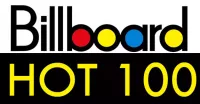
The Billboard Hot is the primary music chart in the...
Saturday Night Live SNL is a late-night live sketch comedy...
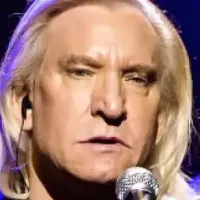
Joe Walsh is an American guitarist singer and songwriter recognized...
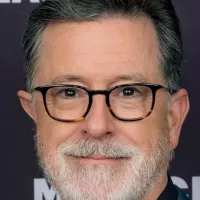
Stephen Colbert is an American comedian writer producer political commentator...
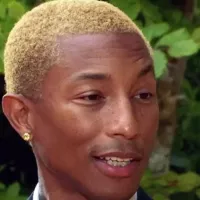
Pharrell Williams a multifaceted American talent is a musician record...
Trending

25 minutes ago Clara Tauson Dominates Linette in Dubai, Secures WTA 1000 Quarterfinal Spot

25 minutes ago Pegula Defeats Jovic, Advances to Dubai Quarterfinals; Set to Face Tauson
25 minutes ago Toyota Supra and Lexus LC May Share Platform for Next Generation Models
26 minutes ago Alaska Airlines pilots get shocking pay raises, reshaping network and margins.
26 minutes ago Ramadan 2026 Timetable: Fasting Hours, Suhoor, and Iftar Times Worldwide Confirmed.
1 hour ago Ski Mountaineering to Debut at Milan-Cortina Winter Olympics in 2026.
Popular

Jesse Jackson is an American civil rights activist politician and...
Randall Adam Fine is an American politician a Republican who...

Pam Bondi is an American attorney lobbyist and politician currently...

Barack Obama the th U S President - was the...

Martin Luther King Jr was a pivotal leader in the...

Ken Paxton is an American politician and lawyer serving as...
